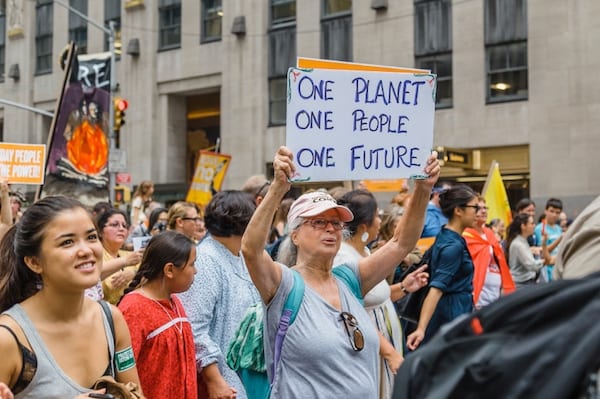
Climate change is the most pressing issue for this year’s election, according to you.
In our poll of Women’s Agenda readers undertaken last week, climate change came out on top, ranked by 45% of respondents as one of their top three policy areas of concern.
It’s not surprising. We’ve just heard that 2015 was the hottest year on record across the world, leading to new calls from key science bodies for greater efforts to tackle climate change. Also this week, we’ve watched spectacular footage of vast swathes of the Great Barrier Reef bleached ghostly white.
So the concern about climate change is arguably quite logical, given the scale of the crisis at hand.
But climate change is far more of a priority for some than others. Namely: for women.
According to the Garnaut Review of Australian attitudes to climate change, numerous studies show that women are more concerned about climate change than men. This is mirrored in the US.
Woman are more convinced than men that climate change is real, already happening, and caused by human activity.
Despite this, women report less confidence in their understanding of climate science than men.
Women are also more likely to support action on climate change, and adopt carbon-friendly behaviours themselves.
In the Garnaut Review, gender and political beliefs were the only two factors found to significantly influence attitudes (data on age, location and education level was inconclusive).
So why do women care more about climate change than men?
Contrary to popular belief, it’s not simply about having children. A major US study found that concern was the same among women with and without children. Concern was also consistent whether or not women were employed, which disproved the researchers early hypothesis that lower income women might be more concerned about economic issues than the environment. Interestingly, the strongest correlation was with women who identified as feminists.
We can’t say for certain why women are more worried about climate change than men. But the researchers suggest it could be because women are socialised to be more empathetic and caring. In contrast, “boys learn that masculinity emphasises detachment, control and mastery”, which could be why men are more sceptical about climate change, more confident in their own opinions, and less alarmed.
Whatever the cause, women have good reason to be worried, given that climate change will affect women around the world the most. Climate change is often framed as an ecological disaster, less frequently as a key crisis for global gender equality.
Women are already marginalised in many developing parts of the world, with the least access to and ownership of resources. As resources become scarcer, women will be the first to suffer. Less resources means less education, perpetuating the poverty cycle.
Women are also worst affected and more frequently killed by natural disasters: often they can’t evacuate because they have elderly relatives or young children in tow. Meanwhile in the aftermath of disasters, women are more frequently subjected to sexual abuse and disease transmission.
Despite the fact that climate change will exacerbate gender inequality and further prevent women from achieving human rights, few women are invited to global forums and roundtables attempting to find solutions to the problem. Women are few and far between, both in climate science and global climate policy.
Maybe, this is why governments are paralysed by inertia when it comes to climate action.
But the message is clear: women want action on climate change. And we’ll be taking that to the ballot box.


